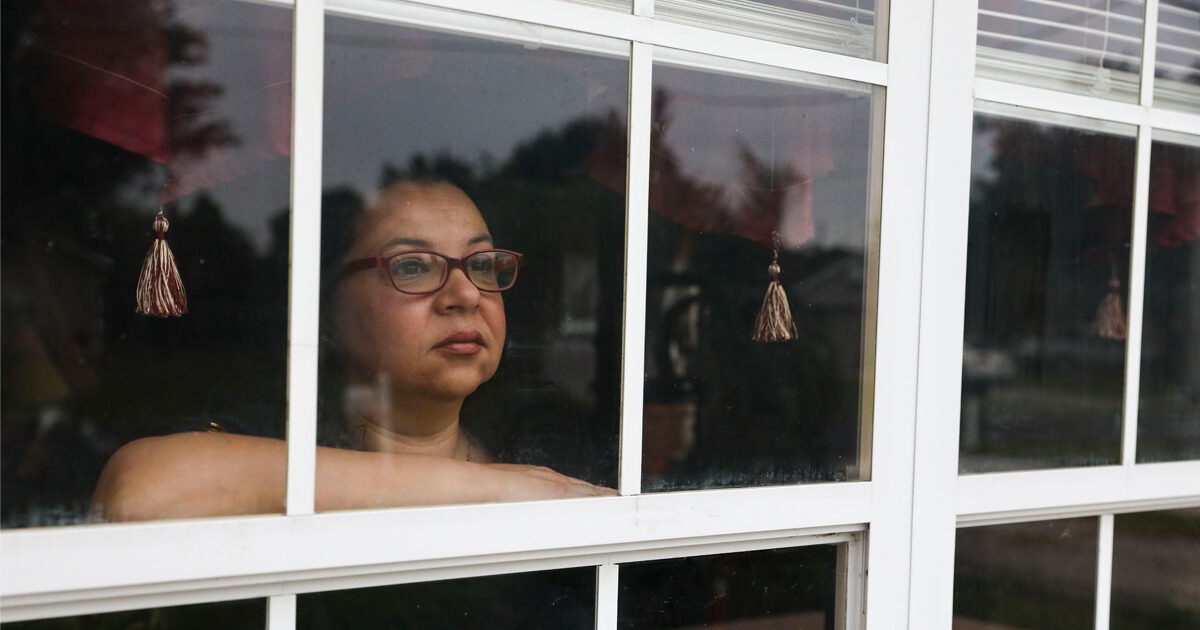ProPublica is a nonprofit newsroom that investigates abuses of power. Sign up to receive our biggest stories as soon as they’re published.
On March 31, Florida emergency room nurse Naomi Moya took a big risk. Though her hospital didn’t allow staff to wear N95 masks when treating patients who were not diagnosed with the coronavirus, Moya brought one from home and put it on to protect herself.
A supervisor noticed the N95 right away and ordered her to remove it.
“I have my own supply,” Moya recalled saying. “It’s protection for me and you and my coworkers and the community and my family when I come home.”
The impasse was polite, but both sides held firm. Thus, at the height of a pandemic, when there’s a shortage of nurses, Moya stepped away. She and the hospital agreed that she would go on unpaid leave.
Clinicians across the country are weighing similar choices when their hospitals lack the protective gear they believe they need to care for patients. A New Jersey doctor said she left her urgent care position because of safety concerns. “This is an unstable situation with a novel coronavirus with a company that could be protective but is not being adequately protective,” she said.
In North Carolina, Angela Allen said she watched warily as the coronavirus spread, waiting for her hospital to do something to protect the staff. Administrators considered the psychiatric unit where she works as a nurse “low risk,” Allen said. By mid-March, she said she asked for the staff to be tested for the coronavirus, so they could also be sure to avoid infecting the patients, and her manager said that wasn’t necessary. “If we can’t rule out that we are carriers then we have to assume that we are,” Allen said. “And if you’re not giving us the right equipment to at least protect our patients, then I can’t do my job.”
Allen said she didn’t quit but took a leave of absence and hasn’t been back since March 19.
ProPublica spoke to 15 doctors and nurses from New Jersey to California to North and South Carolina who said their administrators have normalized poor infection control practices — putting them at risk and likely spreading the virus. A study published Tuesdayby the Centers for Disease Control and Prevention found that health care workers are getting infected at high rates, which also makes them a source of transmission.
ProPublica and others have reported on staff who were suspended or fired for bringing their own gowns and masks and other protective equipment, or speaking up about it. But clinicians are saying there’s an even deeper problem. The conditions are so unsafe they’re being forced to choose between their livelihoods and risking their lives — and that means some are walking away.
Moya works at AdventHealth Heart of Florida, a 193-bed facility in Davenport, near Orlando.
AdventHealth did not respond to ProPublica’s questions about Moya. But it said in a statement that it does not have a shortage of N95 masks or other gear. Its statement said staff are not allowed to wear masks unless they are issued by the hospital, to ensure they are medical-grade and properly fitted. The N95 masks are provided to staff who care for suspected or known COVID-19 patients, the statement said.
Lowering Infection Control Standards
In the upside-down world of American health care in the era of coronavirus, a nurse in an N95 is often considered both safe and defiant.
N95 masks are superior to surgical masks for coronavirus protection, but like many hospitals, AdventHealth Heart of Florida has restricted their use.
But the policy doesn’t account for the spread of disease by people who have not yet tested positive or who aren’t showing symptoms, Moya knew.
“We know the disease process,” Moya said. “I don’t know who may be infected or not.”
The United States was caught so unprepared for the pandemic that hospitals don’t have enough N95 masks and other important gear. So facilities have been lowering their infection

